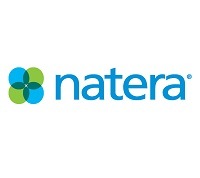 Natera has announced initial results from the global, multicentre, prospective Trifecta study, which assessed its Prospera with quantification test for kidney transplant rejection and was led by Phil Halloran, director, Alberta Transplant Applied Genomics Centre (Edmonton, Canada).
Natera has announced initial results from the global, multicentre, prospective Trifecta study, which assessed its Prospera with quantification test for kidney transplant rejection and was led by Phil Halloran, director, Alberta Transplant Applied Genomics Centre (Edmonton, Canada).
“These new data from the Trifecta study clearly demonstrate that Prospera with quantification can accurately predict rejection in kidney transplant recipients with indications for biopsy from a diverse population and is a useful tool for comprehensive evaluation of graft status,” said Halloran.
The Trifecta study was designed to assess the performance of donor-derived cell-free DNA (dd-cfDNA) and to evaluate the relationship between dd-cfDNA, donor-specific antibodies and molecular pathology. The initial analysis includes more than 300 sequential biopsy-matched samples, drawn between 2019 and 2021, with over 100 biopsy-confirmed rejections from more than 20 US and international sites.
This represents the largest prospective, fully biopsy-matched cohort evaluating dd-cfDNA for kidney transplant recipients, according to a Natera press release, and includes roughly twice as many biopsy-matched rejections than any previously published prospective study.
In the validation cohort, when differentiating rejection from non-rejection, Prospera with quantification delivered an area under the curve (AUC) of 0.81 using the 2019 BANFF criteria, and 0.89 using molecular pathology, as the standards for rejection. Recent studies have shown that molecular pathology may be more accurate in diagnosing the rejection status in kidney transplant biopsies and therefore may be a better way to measure true cfDNA test performance, the release adds.
The Prospera test also showed an AUC of 0.91 for differentiating rejection versus quiescence; however, because quiescence includes only the most stable of patients, and excludes patients with non-rejection pathology findings on biopsy, its utility in a real-world setting is limited. This analysis is similar in concept to that described in recent multi-modality assay validation publications—which can be viewed here and here.
“The AUC of Prospera with quantification in this multi-site, prospective study was excellent and confirms Natera’s position as the cfDNA technology leader,” said Bernie Tobin, general manager of Natera’s Organ Health Division. “Natera now has the most significant prospective biopsy-matched data in the field of dd-cfDNA in kidney transplant rejection monitoring.”
In the release, Natera states that it anticipates the results of the Trifecta study will be published in early 2022.











